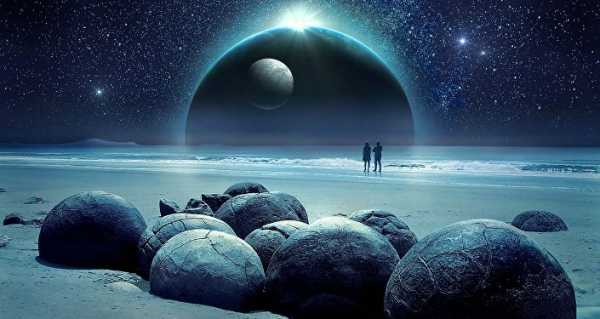
According to scientists, the imminent creation of a new generation of super-powerful space-based telescopes makes the need to find and list potential habitable planets all the more important.
A group of German and American researchers studying the 4,500-or so known exoplanets beyond our solar system have concluded that two dozen of them may be ‘superhabitable’, i.e. contain conditions ripe for life (but not necessarily life itself) and which may be even better than Earth.
Their study, recently published in the Astrobiology journal, revealed a Goldilocks list of potential habitable planets with varying conditions, some of them wetter, warmer, and larger than our own. Astronomers focused their work on potential terrestrial planets orbiting within their host stars’ liquid water habitable zones.

Setting sun, distorted through atmospheric layers.
Scientists believe studying these older solar systems is a fascinating prospect because, if they do end up having life, it will have had more time to evolve to a complexity equal to or greater than that found on our planet.
Things become more complex when considering various factors –such as the age of planets themselves, since those which have run out of geothermal heat, like the Moon, have no magnetic field to protect against deadly solar rays and other space-based threats.
None of the 24 planets identified by the researchers were deemed to be perfect, or ‘superhabitable’, based on the established criteria. However, one was found to have four of the critical characteristics established by scientists.

Space
Researchers say that all the planets in their list are situated over 100 light years from our planet, meaning reaching them will remain out of the question for many, many years, unless humanity discovers way to engage in interstellar travel. One light year, which measures the equivalent of the distance traveled by light in Earth years, is equivalent to about 5.88 trillion miles, or 9.5 trillion km of distance.
However, Dr. Dirk Schulze-Makuch, professor at the Center for Astronomy and Astrophysics at the Technical University of Berlin and lead author of the study, says astronomers’ findings should prove useful even before super-fast travel. which is presently the stuff of science fiction, is invented.
“We have to focus on certain planets that have the most promising conditions for complex life. However, we have to be careful to not get stuck looking for a second Earth because there could be planets that might be more suitable for life than ours,” Schulze-Makuch added.
Sourse: sputniknews.com
0.00 (0%) 0 votes


































